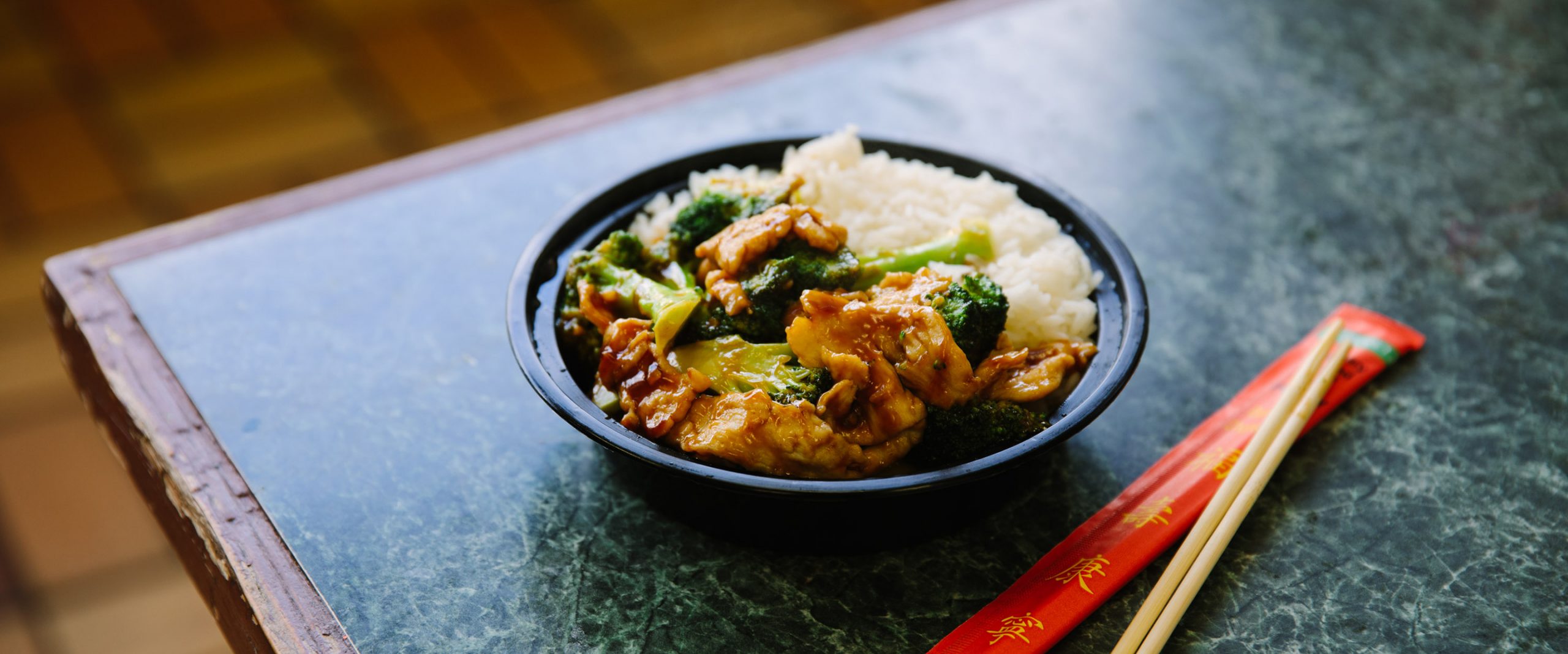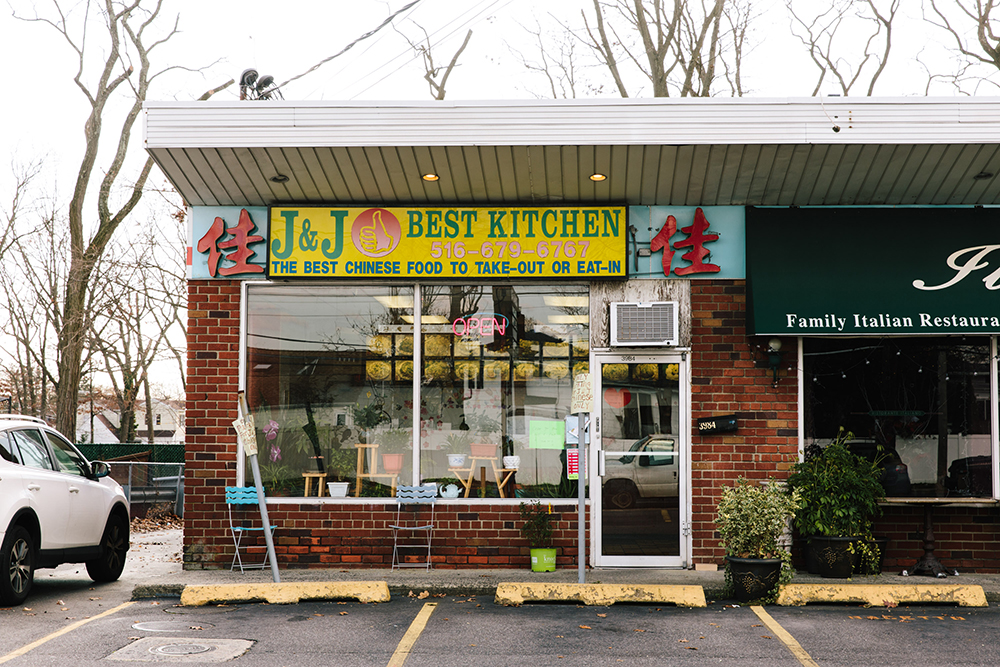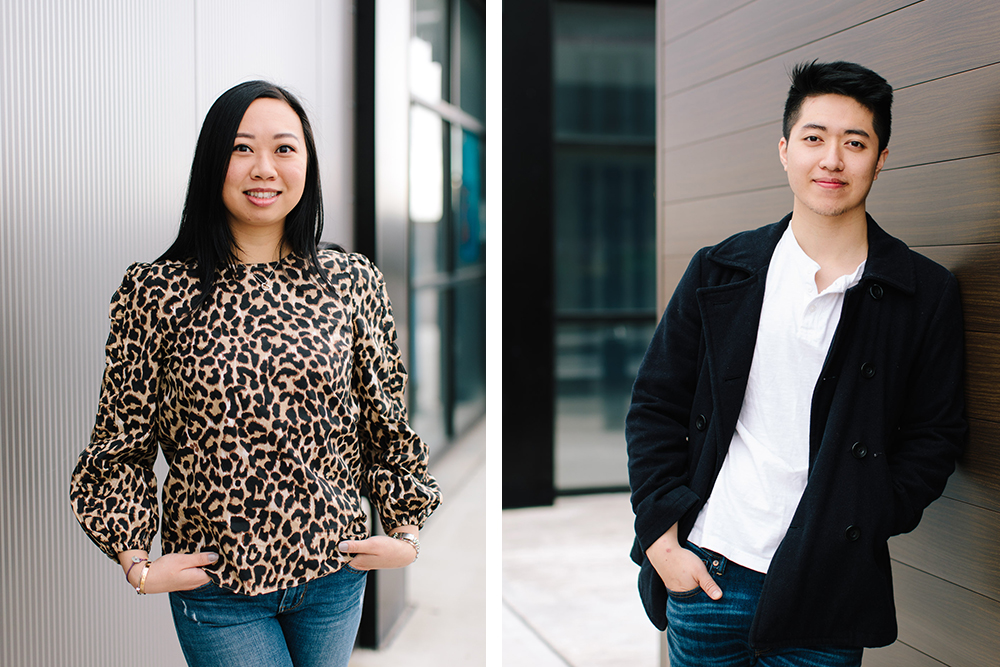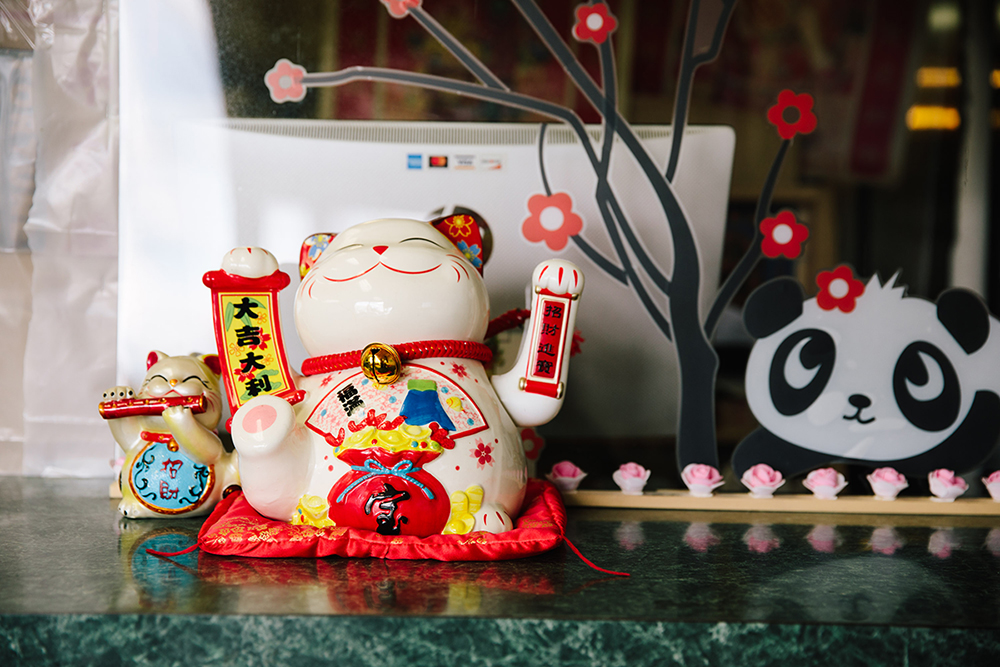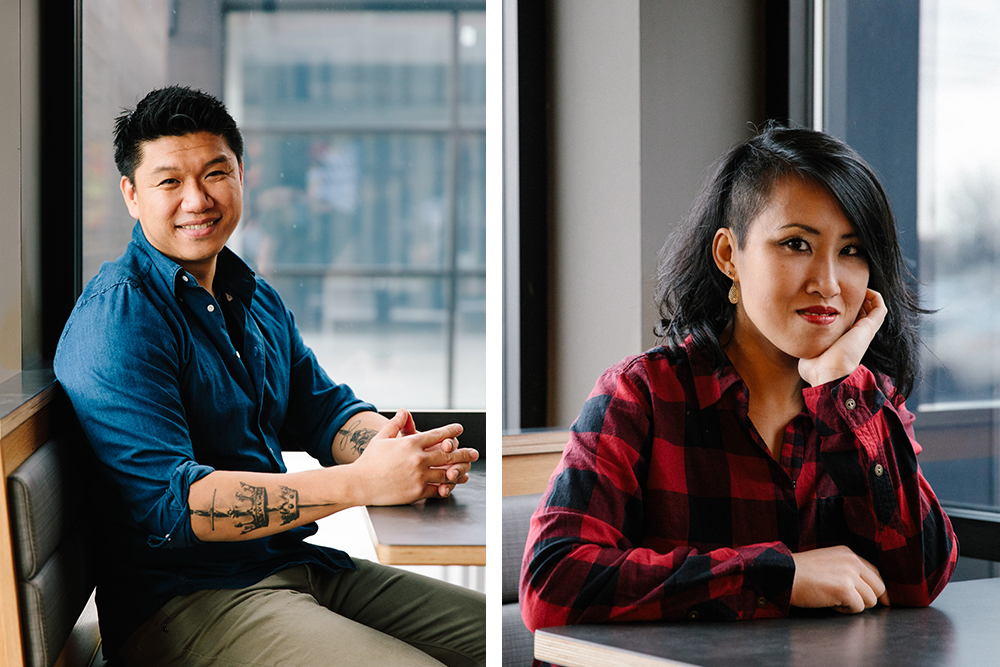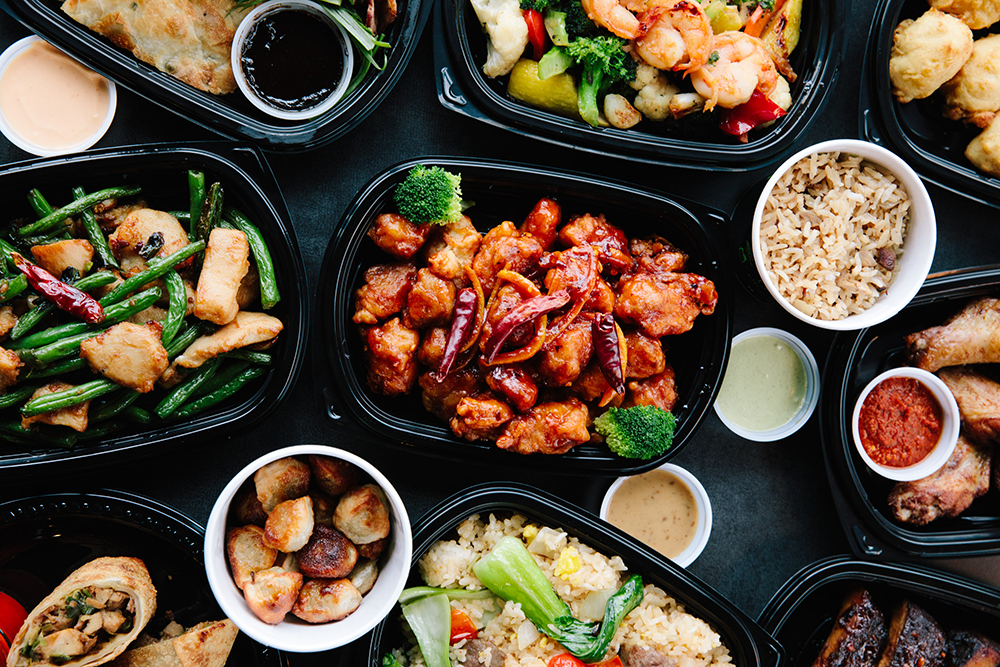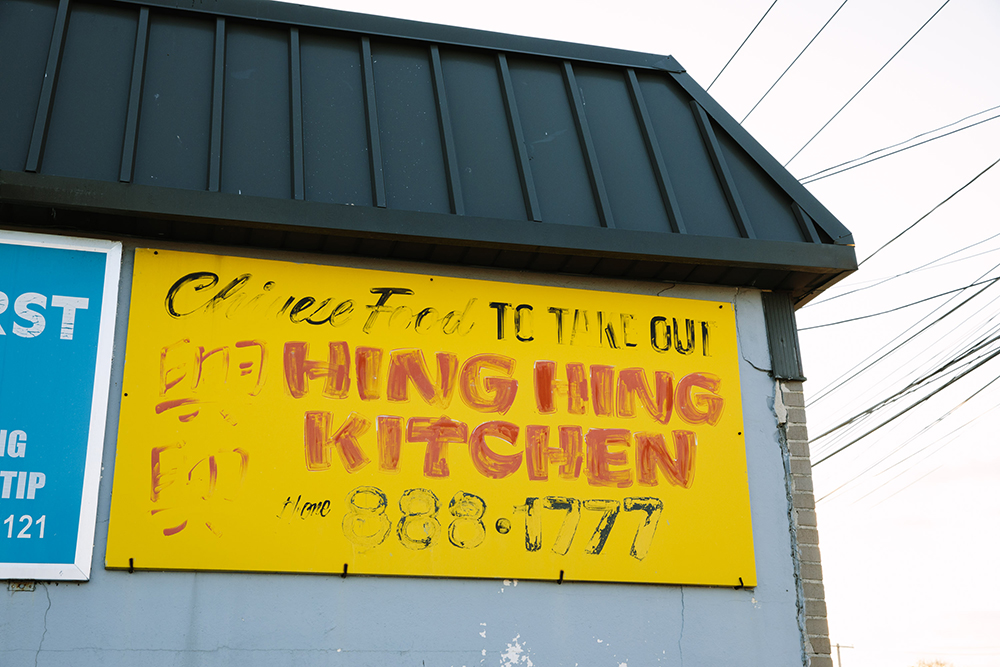Chinese restaurants around the United States are closing and owners say "that's a good thing." But how do the children who were raised in them feel about the erasure of their uniquely shared childhood experience? This essay is the collective story of four family restaurant owners' children: Donna Kwok, Mike Wang, Brian Cheng, and our author, Su-Jit Lin. It was conceived as a response to a 2019 New York Times article about the increasing closures.
It's 4:45 PM in the middle of suburban Long Island, New York. A small child, black-haired head tilted down, sits on his heels on a pleathered chair too low for his young frame. His brow furrows in concentration as he works out an elementary math equation. He pushes his pencil hard against the surface of the wobbly table, making scratching sounds as his sister silently mouths the words she's reading out of a textbook in the other corner of the room, intently blocking out the whooshing sounds of wok and fire in the background and exhaust fans churning.
They're both in puffy winter coats; the constant opening and closing of the plate-glass door in the storefront lets in a lot of chill each time a customer enters or exits.
I'm not sorry I grew up in a takeout kitchen. And I know I'm not alone.
The phone rings from behind a Formica counter beneath faded backlit stock images of Americanized dishes unheard of in China. "Get the phone!" is heard from behind a stainless steel panel that hides a soup station, where another girl warms her hands on the steam table between counting wontons in groups of five and ten into stacked containers, ready for reheating. The reader lets out an exasperated sigh and emerges from her book to answer it. Homework will have to wait until after the dinner rush now.
Even ten years ago, this was a common scene for many in the suburbs ... but not for much longer as Chinese family restaurants face extinction. The way of life for my family growing up - and millions of other first-generation Chinese takeout kids - is facing erasure.
On Christmas Eve 2019, The New York Times published an article bluntly entitled "Chinese Restaurants Are Closing. That's a Good Thing, the Owners Say." In it, the authors Amelia Nierenberg and Quoctrung Bui talk to several immigrant entrepreneurs, all of whom are relieved that their restaurants will not be taken over by their children.
They talk about the hardship, the struggle, the prejudice. They speak on the rising competition of a restaurant industry that is evolving faster than they themselves can. They reminisce about their sacrifices and their hopes for their children, how they feel about watching the next generation achieve the social mobility they had dreamt about, their pride watching their children live the American dream.
But how do their children feel? Are they happy to see their collective experience disappear in just one generation? And do they regret their way of life?
Because I don't.
I was that child writing an essay at that rickety table. The child standing on a box in front of the salamander, broiling ribs between tending to the deep fryers, after having "graduated" from scooping rice. The one unstringing snow peas, bagging soup noodles, wrapping wontons, boxing orders, dealing with irate customers, and giving up every weeknight, weekend, school break, and a "normal" American childhood with my siblings as we all chipped in ... all so that one day we wouldn't have to.
I lived that life, and I don't regret it. For the lessons I learned, the fire in my belly, and the drive it gave me to strive for the fantasy my parents sacrificed so much to give us a shot at. Hard as it was - and it was hard - I'm not sorry I grew up in a takeout kitchen. And I know I'm not alone.
If there's one universal truth about working in the restaurant industry, it's that time becomes a blur of predictable monotony. Day in, day out, it's the same thing: you wake, you work, you tumble into bed and do it over and over again for years on end. This ceaseless cycle is magnified for private restaurateurs, as weekends signify workdays, not rest days, and vacations mean loss of income and costly expenditures.
For Chinese takeout families, the passing of time means even less. With no mainstream Christian or Jewish holidays to observe, no time for Chinese ones, no context for traditional American gatherings, and not even any childcare schedules to work around, there wasn't much to differentiate one day from another.
"Every day after 3, we'd get picked up from school and go straight to the restaurant," Donna Kwok, a Manhattan-based financial analyst and working mother, remembers vividly. Like me, Donna and her younger brother would, "do homework in the waiting area until the phones would ring and we'd start to get busy - then it was time to help out."
Everyone was getting taken to houses and I was being dropped off in a parking lot.
Brian Cheng, now a senior manager in the pharmaceutical field, followed a similar schedule and cues, his mother running home to grab him and his two sisters as soon as the bus took them home. "If we had schoolwork, my parents would always say, yes, do that. But there would be a certain level of busy-ness, when the phones started really ringing and I could see my parents struggling to take or finish calls, that I knew to run in and help."
Mike Wang, a first-generation immigrant who became a medical practitioner and entrepreneur, didn't even get the small respite of an at-home breather between school and work - his parents arranged for the bus to drop him off at the restaurant. "It was really humiliating," he laughs wryly. "I was just shy of nine and had just arrived in the U.S. from China, not even able to speak English. I got off the plane and pretty much immediately went to my mom's old, beat-up restaurant she'd saved up for three years to buy while my dad and I were overseas ?Then I started school the next day, and everyone was getting taken to houses and I was being dropped off in a parking lot."
However, there was always one day that was special, one day different from the other 364, that was for rest: Thanksgiving. The other holidays didn't exist. After all, Chinese food and Christmas go together like latkes and applesauce for many Jewish Americans, and Chinese holidays like the Lunar New Year didn't mean anything to their customers, who would be upset the store was closed, on top of the myriad other perceived offenses diners would take out on an uncomplaining model minority.
On Thanksgiving, Chinese restaurants closed out of practicality, not nostalgia; they simply didn't do any business on the one day out of the year you could count on most people to be cooking at home. Chinese families, unindoctrinated to how the holiday was "supposed" to be celebrated, made their own traditions. My father took us into the city, and as we got older, to visit colleges, an annual adventure that helped to shape the course of my future.
Others stayed closer to home. Says Kwok, "It was literally our only holiday, and I really looked forward to it since it was the one day Mom and Dad weren't working and we'd be home and even have people come over to our house. My cousins and extended family would come over and we'd all hang out and sit and eat dinner together ... it was the only time we'd get to sit together for an unrushed meal of real Chinese food brought in from Flushing and Chinatown."
For Cheng's family, it was simply a day off, and they'd just hang out, play mah-jong, and make an easy meal of Chinese hot pot. A month after their one day off, kids like Wang would go on deliveries during Christmas and see lighted trees and piles of presents, feeling completely removed from it.
"I thought my life would never be like that - that kind of family life was for white people. For kids like me, there was no summer, no camp, no pool parties, no Halloween. It was never on the table. Our family life was working together. Even now, to this day, we've never taken a family vacation," Wang says matter-of-factly.
"The only time my parents ever went anywhere was back to China because a relative died or there was some business that needed to be handled," Kwok reflects. "That was ten or 12 years ago."
My own family has taken only one vacation together, only after they sold the restaurant and only because the experience was a retirement gift. To this day, my father's simple bucket list still includes seeing the Caribbean Sea.
However, experiencing this limitation has imbued an immense sense of gratitude in my generation, the generation that has earned and educated their way out of this lifestyle. I work in the travel industry, a dream for even those who did grow up with the opportunity to do so. Cheng and Kwok have traveled in Europe, and Wang's path has taken him as far as the deserts of the Middle East. This has helped us better understand the temporary state of today's COVID-related travel freezes, and appreciate the impermanence of restriction after being raised in an environment where travel wasn't even in the realm of possibility.
In the simplest of terms, life without holidays gave us appreciation for something many Americans claim as an inherent right: freedom.
Being a have-not has consequences beyond material things. For many Chinese-Americans from the restaurant sector, it often means additional discrimination and amplified disrespect. It's much easier to see someone as a second-class citizen when their English is broken and they lack the bright flash of money as a distraction.
"People can become very nasty," Kwok learned from an early age working in the food industry. "I remember one guy - he was eating his lunch and halfway through, he was like, 'I don't like it. I want a refund.' Another time, a lady brought her jacket in and said, 'Your sauce spilled all over this sleeve; you owe me a jacket.' She threatened to call the cops and have lawyers call, even though she spilled the sauce at home.
She goes on, "There were so many just nasty moments like that, with people threatening to call the health department, the police, immigration, and you know, the customer's always right. With my parents being immigrants, I knew that they felt that they were easy targets - people who feel that your English is not good or that you don't really know your place make it apparent they believe they'll always have an upper hand over you. It's what they're trying to portray."
With my parents being immigrants, I knew that they felt that they were easy targets.
"When people were nasty to my parents," Kwok shares, "we all felt no one could do much. They couldn't truly understand what was being said, and you get a fear of what people might do, of the inconvenience and legality," no matter how unfounded the allegations. In a vulnerable position of uncertainty and lack of familiarity, you begin to question things, to fear repercussion and default to subservience.
Her anecdotes are echoed by Wang and Cheng with eerie similarity to those in my own family. My little sister will never forget the time someone on the phone demanded, before she even said anything beyond the initial greeting, to "talk to someone who talks English; I can't understand you people." My parents were sued by a customer who wore heels in a rainstorm and consequently slipped on the floor. We had customers ask for refunds for eaten food that they later claimed had bugs in it, threatening scathing Yelp reviews if they didn't get their way. As Wang points out, "As successful as a Chinese restaurant may be, owners will always bend over backwards, customizing dishes and over-accommodating to be competitive" and to try to overcome the stereotype of low-quality, dirty establishments run by uneducated people.
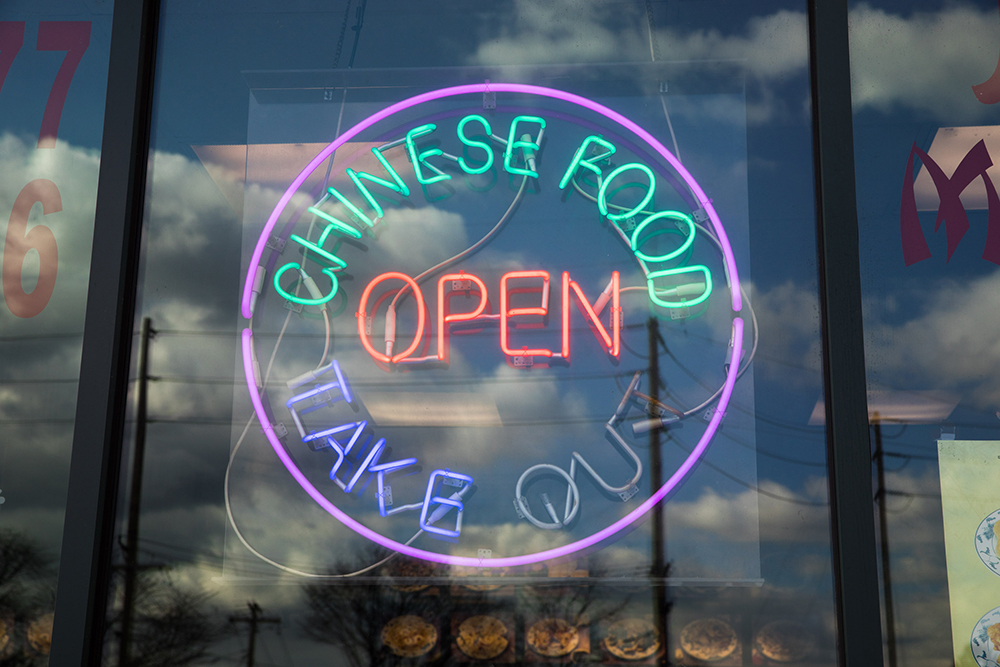
Variations of the classic neon sign can be found hanging in many Chinese take-out restaurants, a beacon of reliable food service available almost every day of the year.
Sadly, the attitude hasn't changed much - part of why the old guard of takeout owners rejoice in their children not taking up the mantle. As recently as three weeks ago, Wang's mom patiently heard out a customer who complained about paying $6.50 for a lunch special that included fried rice, an entrée, and soup or soda. "You can't even get a fast food combo for that price anymore," Wang shakes his head in resignation. "But what can you do?"
The answer to that, for our parents, has been to push us, in their own individual ways, to leave the path they trod by sharing it with us.
I'll never forget what my parents said to me in response to a fit of rebellion: that if I didn't put school first that this - gesturing to the takeout around us - all of THIS would be my life. That shut me up quickly.
"I think a lot of people don't realize how hard it is to own your own business," Cheng observes. "When you grow up working in one every day, after school, on weekends, you see how difficult it is; you see the physical toll."
It was the hardship itself - and fear or it - that lit the fire in the last generation of takeout kids, propelling us to quickly, in one generation, mobilize upward and out of it.
Redemption comes in different forms.
Contrary to stereotypical beliefs, our generation wasn't Tiger Mom'd out of the industry. Sure, every set of parents here would love a doctor in the family. But who wouldn't?
In reality, Cheng's parents weren't adamant about him going white collar-they made it a given, hypothesizing about future career paths in medicine and never speaking about the possibility that he'd ever run a restaurant. Mine did the same-they led by assumption. Kwok's parents emphasized working in a field that would allow her to start off a step ahead, e.g. a good starting salary and room for growth so that she could enjoy the work/life balance they never had. Where we took our education was up to us, so long as we could make a good living and enjoy the financial security they couldn't provide in the cutthroat restaurant business.
Wang actually did pursue a doctorate in medicine. However, to the great chagrin of his parents, he left healthcare to come back to his roots. When he told his mother in front of the prestigious hospital he worked for, she looked at the building teary-eyed and told him, "I can't believe you gave up working in that building to go back to restaurants."
"There was such a sadness there," he recalled, "where I could tell she was asking herself, 'Did I fail my kid?'"
But it's different this time. It's different for us when we go back to food. Because redemption comes in different forms.
Wang's return to food is as an entrepreneur and the founder of MÓGŪ, an automated fast-casual concept already set to revolutionize how we eat and view Chinese takeout. Mine has taken me to the other side of the counter: I write about food from the perspective of an intimate insider with the passion and zeal of lived experience. Best of all, I get to do it in a language people used to assume I couldn't speak.
Kwok's arc leads directly to her son as she teaches him to "stand up for himself, to go for his goals and dreams, as well as to work hard as my family did." Her validation comes from being able to enroll him in extracurriculars and all of his day care's activities, and do things as simple as buying him toys without worrying about what her next week's income would be. "I don't want him to feel what I felt growing up, that I was missing out," she says protectively.
Our generation is a product of our time and the politics around it. It will never again be replicated.
Wang aptly sums it up. "Our parents immigrated when China was communist, the economy there wasn't yet westernized, and the U.S. was booming as a leader of the world. Into that, here comes this group of immigrants desperately trying to fit into the society with very, very little resources and options. I lived in a one-room apartment with my parents; I could [reach across and] touch their bed." My own mother and grandparents shared a single room in a house, too, with other Chinese families. So did Cheng's father.
"Now," Wang continues, "they come here and go to Ivy League schools."
He, like the rest of us, grieves the death of the lifestyle we grew up with because, "it's those challenging times that hardened us as people to be survivalists, to persevere, to persist through all odds. I fear that these defining traits may be diluted ... they will never experience the struggle."
"The work mentality, the rejection of laziness ... you carry that with you," says Kwok "I want [my son] to know the value of hard work, something I experienced first hand growing up - even though the goal of my parents, of every parent, is to have their children not to have to work as hard as they did."
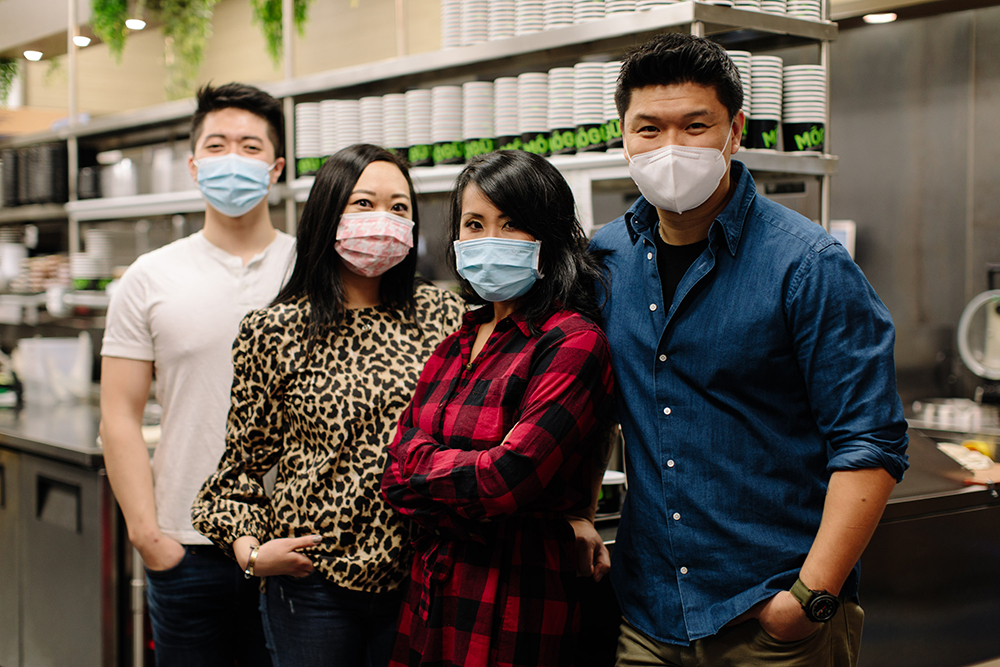
Pictured left to right: Brian Cheng, Donna Kwok, Su-Jit Lin, Mike Wang, in the kitchen at Wang's restaurant, MÓGŪ, in Farmingdale, NY.
Despite the long hours, the missed opportunities, the hardship-there is a fierce sense of pride that emanates from the battle scars. There's a deep satisfaction in success, shared among the Cinderella stories of our peers. As challenging as it was, I am saddened that once we are gone, our shared experience is, too.
So, yes, Chinese restaurants are closing, and some owners say that's a good thing?But the product of them? We're not so sure. Because although Cheng, Kwok, and Wang all say they wouldn't wish that way of life upon their own kids, there is a competing sense of concern that the future generations will be worse off without it. That the ethic and hunger that defined us and made us this upwardly mobile within one generation will be lost with our living memory.
Only time will tell.
Su-Jit Lin is a storyteller first and everything else second. Her work has been featured on Thrillist, PEOPLE, Al Jazeera, Folks, Longreads, The Spruce Eats, Yummly, AllRecipes, The Kitchn, Ravishly, AAA Magazine editions, Edible Long Island, Where Y'at, and others. Her person, however, can be found traveling for food, working off the food at the gym or on some type of adventure, or writing essays about all of the above and how they shape the human experience.
Christine Han is a New York City-based commercial and editorial photographer specializing in portraits, lifestyle, food and still life. Her approach is relaxed and collaborative, and she excels in making natural, authentic imagery that brings out the inherent beauty in every subject. You can find more of her work at christinehanphotography.com and @christineshoots.









